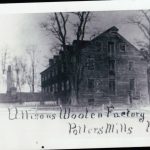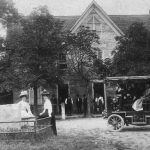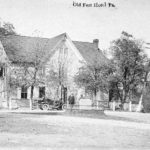Zoning Hearing Board Information
Meetings
- When there are cases to be heard
- Hearings are scheduled for 2nd and 4th Thursdays of the month
— Otherwise, meets the 2nd & 4th Thursday @ 7:00 p.m. as needed with dates & times to be advertised
Zoning Hearing Boards are mandated by the Pennsylvania Municipalities Planning Code. The major role of a Zoning Hearing Board is to provide a legal mechanism for considering appeals from property owners seeking variances from zoning requirements, Special Exception approvals, Interpretations of the regulations and, as a way to challenge the validity of land use determinations. Potter Township’s Zoning Hearing Board meets on an as-needed basis. Meetings will be scheduled within 60 days of receipt of a complete application. When meetings are scheduled they will be listed on the Township’s Calendar. For questions regarding the Zoning Hearing Board, including fees associated with filing, please contact Penns Valley Code Enforcement Agency 814-349-8177. Applications for the Zoning Hearing Board can be found on our homepage under the Government, Building Permits, Township Forms tab.
| Member | Term Expires |
|---|---|
| Madge Ludwig, Chair | 12/31/2026 |
| 12/31/2025 | |
| Doug Roth | 12/31/2027 |
| John Cabibbo | 12/31/2028 |
| Ron Grove | 12/31/2029 |
| Alternate, Vacant | 12/31/2025 |
| Alternate, Vacant | 12/31/2026 |
| Alternate, Vacant | 12/31/2027 |
| Jeff Stover, Solicitor | Annual appointment |
Zoning Hearing Board Members: Members serve five year terms. Alternate members serve three year terms.
Zoning Hearing Board FAQ
What should be on the zoning hearing board application?
The application needs to clearly state the case you are presenting, in a way that presents what you are proposing and also mentions specific sections of the zoning ordinance. A plot plan of the lot at issue should be provided showing all buildings, lot lines and related information. Other information pertinent to the specific application should be provided. For instance, a home occupation request should include a floor plan; a request for a setback variance might need to provide distances from the lot line and from the neighboring structures. While township staff may provide guidance, it is up to the applicant to present a complete application. The original applications, along with six copies, need to be submitted along with the filling fee of $500.00, and an escrow in the amount of $1,2500.00. The applicant is also required to provide the mailing addresses of all of the property owners within 200 feet of the exterior boundaries of the property which is the subject of the application or appeal.
What is the difference between a special exception and a variance?
A special exception is a listed permitted use that has conditions attached. A special exception request is required to appear before the zoning hearing board to ensure the listed conditions are met. A variance is a request to be exempt from some of the rules of the zoning ordinance due to a hardship. The Pennsylvania Municipalities Planning Code states five conditions that must all be met in order to be granted a variance. A summary of those conditions are: there must be unique circumstances; no possibility the lot can be developed in conformance with the ordinance; the hardship has not been created by the applicant; the variance will not alter the character of the neighborhood; it is the minimum variance possible.
Who should present a case?
Some citizens present their own cases, while others have an attorney or engineer present their cases.
What happens before the hearing?
Public notice is given by running a legal ad (twice) in the legal listing section of the Centre Daily Times. The first publication shall not be more than 30 days and the second shall not be less than 7 days from the date of the hearing. A sign is placed in the yard of the property in question the week prior to the hearing and letters are sent to the applicant and to all property owners within 200 feet of the exterior boundaries of the property which is the subject of the application or appeal notifying them of the hearing date and time.
What happens at the hearing?
Applicants, or their representatives, are obligated to present the case to the Zoning Hearing Board. If a case is not presented, the Zoning Hearing Board must either deny the request or continue the hearing. Once a presentation is completed, both the Zoning Hearing Board and the township staff are entitled to ask questions. The general public will be allowed to make comments, but not question the applicant. Occasionally, the Township Board of Supervisors may express an opinion or request that conditions be imposed for a particular case. Once testimony is completed, the Zoning Hearing Board, while it will often make a verbal determination at that time, may take up to 45 days from the conclusion of the hearing to provide a written decision.
What happens after the hearing if my case is denied?
You may appeal the decision to the Court of Common Pleas. If you wish to appeal, you must do so within 30 days of the date of the written decision.
What happens after the hearing if my case is approved?
Affected parties, such as neighbors or the township, may appeal the decision of the Zoning Hearing Board to the Court of Common Pleas within 30 days after the date of the written decision. Additionally, there often are other approvals to be obtained prior to acting upon the approval received from the Zoning Hearing Board. For example, land development or building permits may be needed.


